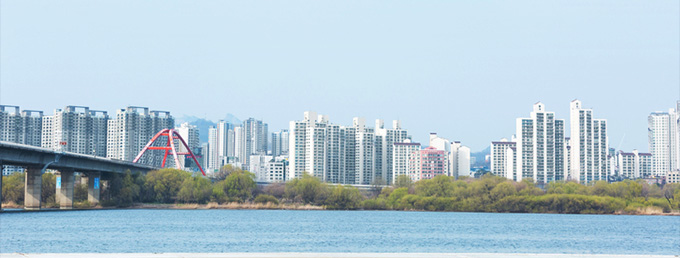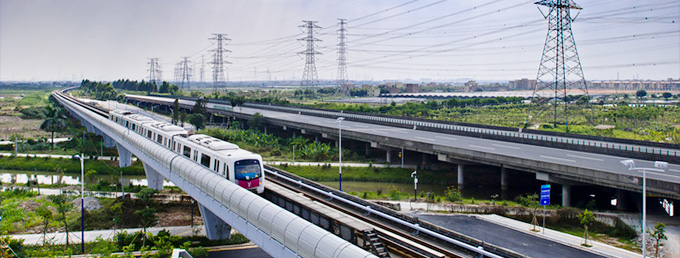Climate Change
Greenhouse gases
Korea is working ambitiously to reduce greenhouse gas emissions and join global climate action as a party to the Paris Agreement. The country’s emission reduction goal has been set at 37% compared to Business As Usual level, to be achieved by 2030. In 2016, a roadmap that lays out detailed strategies and sectoral policy tools was established to reach this goal. Since then, the roadmap has been continuously updated to ensure it is well aligned with latest trends in policies and technologies. The revised roadmap represents a cross-sectoral and inter-ministerial implementation framework led by the Ministry of Environment
Emissions Trading Scheme
The scheme started its nationwide implementation in 2015 as a key tool for emission reduction in industry sector. More than 70% of national GHG emissions are subject to the scheme as of now. Of the total emission permits, the share of auctioning is on the rise to ensure the scheme functions as a carbon pricing system. The benchmark method, currently in use for allocation of permits, rewards efficient installations by setting a product benchmark based on the Best Available Technology.
Adaptation
Average annual temperature in Korea has risen around 0.18℃ for every ten years for the past century, which is faster than the warming trend of the rest of the world. Extreme weather events including heat & cold waves are becoming more frequent as well. To quickly adapt to this changing climate, the Ministry of Environment is focusing on building adaptive capacity at national level. Targeted action plans are in place for different sectors and industries. The Ministry is also working on enhancing climateresilient infrastructure for cities where most of the population lives. Programs for the vulnerable are being scaled up as well to better protect children, the elderly, low-income people and outdoor workers from extreme weather conditions.
Sectoral strategies
The goal requires optimal mitigation strategies & actions across all sectors as follows
-
Reduce the share of coal in the current energy mix while increasing the proportion of renewables up to 20% by 2030
-
Suspend granting permits for new coal-fired power plants and phase out old ones
-
Support innovation in manufacturing by providing more smart factories. Factory Energy Management System (FEMS) could be one of the options
-
Convert into eco-friendly refrigerants for vehicles and air conditioners and replicate the industry’s best practices in other sectors by 2030
-
Expand zero-energy requirements for all new buildings and promote green remodeling to dramatically improve building energy efficiency
-
Provide more electronic & hydrogen vehicles for the market and offer more low-carbon options for public transportation such as intercity railroad networks
-
Reduce waste sources and promote recycling. Put circular economy in practice by implementing action plans for each product phase from production to recycling








